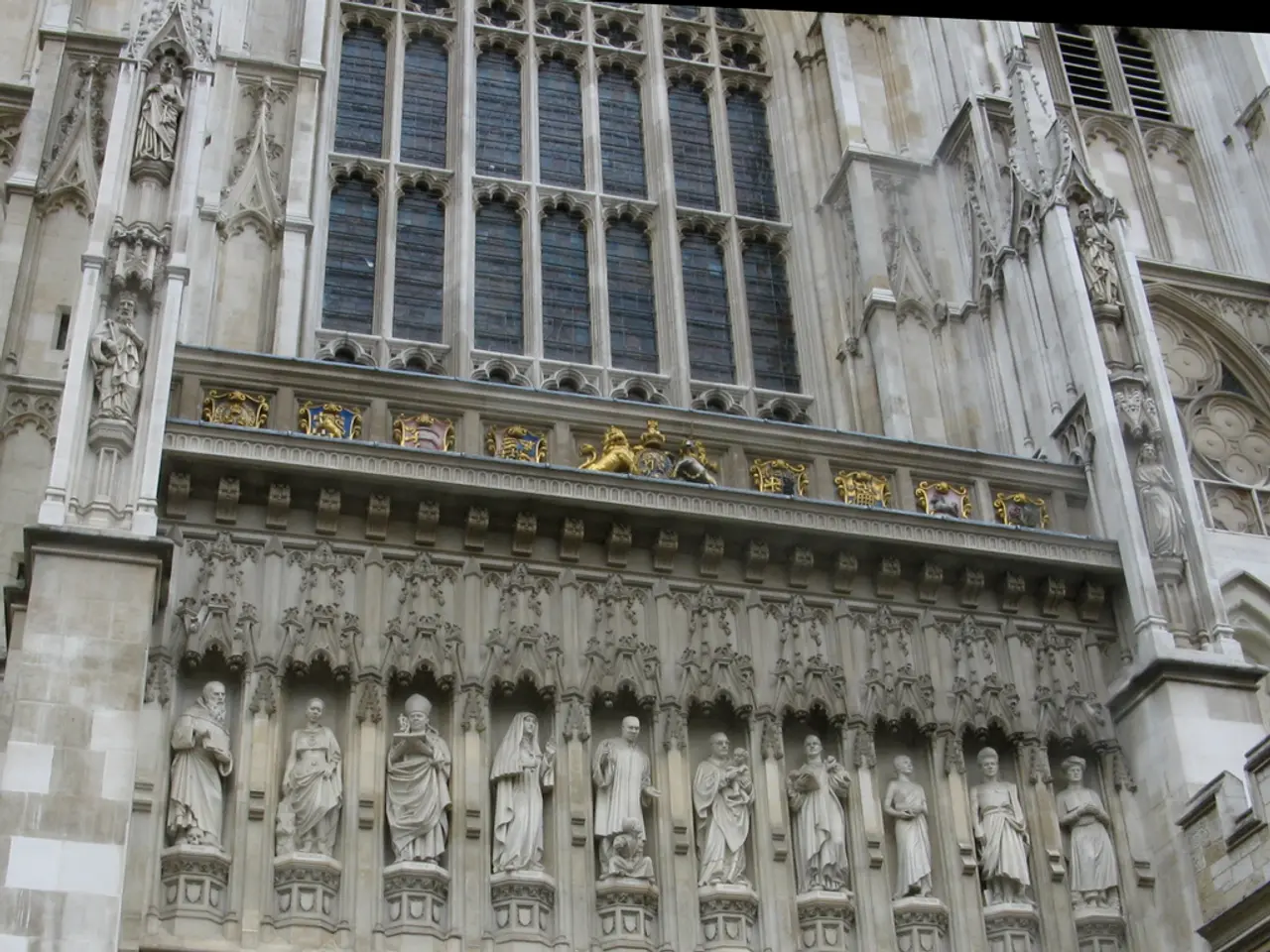Stunning architecture for Bornplatz Synagogue unveiled.
Rebuilding of Hamburg's Bornplatz Synagogue: A Victory for Democracy and Jewish Life
After more than eight decades, the rebuilding of Hamburg's Bornplatz Synagogue is underway, marking an important step in strengthening Jewish life in the city. The demolition of a bunker at Allendeplatz, currently housing the University's Institute of Soil Science, signifies the first major step in implementing the project based on the winning design.
The new synagogue, unlike its single-story predecessor, will span two floors. It will also feature a striking glass dome, a first for Jewish houses of worship in Germany. Architecturally, the new synagogue will be optically similar to its 1906 completed historical predecessor in size, height, and red brick architecture.
The architectural community that developed the design for the new synagogue consists of the offices Schulz and Schulz Architekten (Leipzig), Haberland Architekten, and POLA Landschaftsarchitekten (both Berlin). The winning design, presented by Schulz und Schulz Architects with Haberland Architects and POLA Landscape Architects, was unanimously chosen by a 27-member jury.
The much-discussed floor mosaic by artist Margrit Kahl, which has been depicting the outline of the old Bornplatz Synagogue on Joseph-Carlebach-Platz since 1988, will be honoured in some way. The new synagogue will also serve as a small, lively quarter and a meeting place for the Jewish community, with an administrative building, an extension to the Jewish school, a youth center, kitchen, seminar rooms, and a small synagogue for the liberal community within the unified Jewish community.
The security concept for the new synagogue is modelled after the one in Munich, which also has an open design and a café available to the public. Importantly, the security concept will not include walls or fences, as it is considered essential for Jewish life not to be confined behind barriers.
A tendering procedure for the technical and security-relevant planning of the new synagogue will be initiated. The federal government has already provided 13.2 million euros towards the project, but the total costs cannot currently be quantified. The Liberal Jewish Community, Israelitischer Tempelverband, does not have space within the Bornplatz Synagogue project and is in talks with the Temple Association about purchasing the ruins of the liberal synagogue in Poolstraße (Neustadt) and planning workshops.
The rebuilding of the Hamburger Bornplatz Synagogue, destroyed in 1938, is a victory of democracy and Jewish life over the barbarism of the Nazis. It fulfils the longing of Jewish women and men for equality and security, and the new synagogue is seen as an important step to strengthen Jewish life in Hamburg. Archaeological finds discovered during excavations on the square two years ago, including tiles, stained glass windows, or ornaments from the old synagogue, will be exhibited in display cases.
Read also:
- Wawa avian tests positive for West Nile disease
- Competing for dominance in the upscale cruise liner industry
- Individuals suffering from ailments such as arthritis or asthma could potentially secure £30,000 in financial aid for home renovations at no cost to them.
- The market for Kraft Lignin is projected to increase at a rate of 7.2% each year until 2034.





